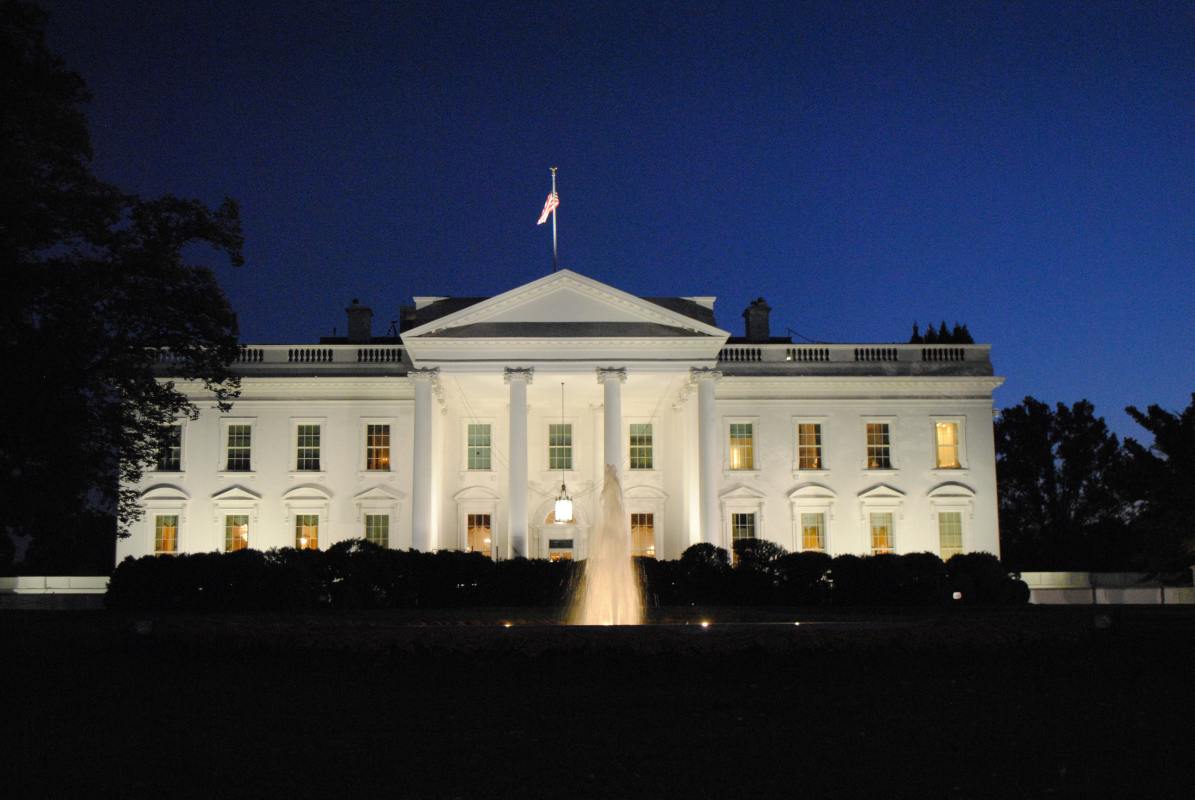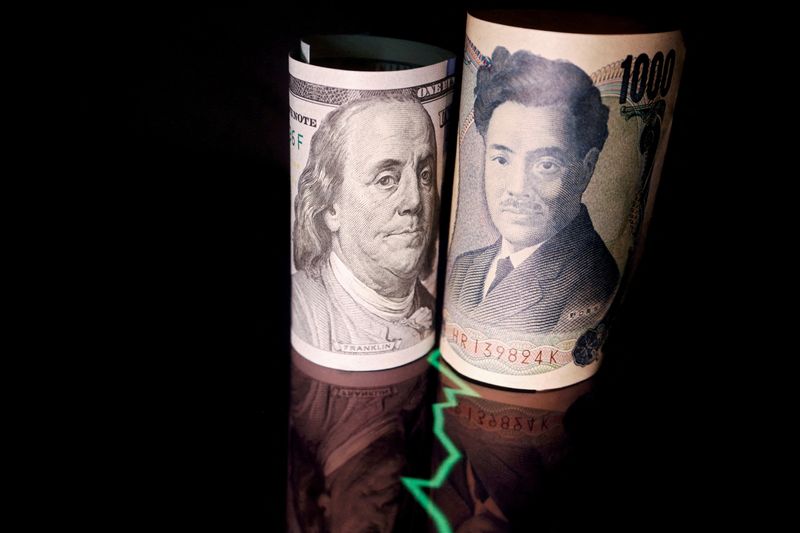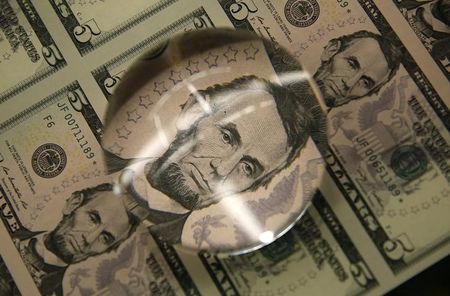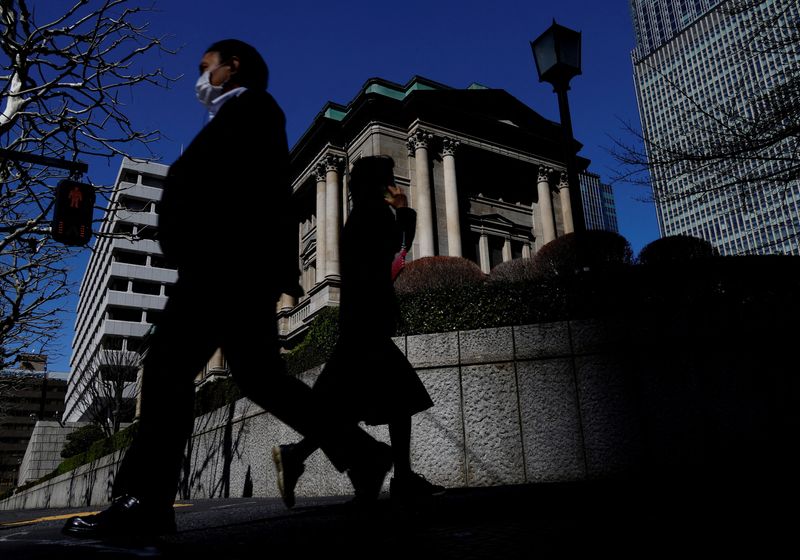Month: May 2024
President Joe Biden Will Veto Legislation Allowing Financial Firms to Custody Bitcoin: White House
The Executive Office of US President Joe Biden has announced its stance on proposed legislation, H.J. Res. 109, that would allow highly regulated financial firms to act as custodians for Bitcoin and other cryptocurrencies.
JUST IN: 🇺🇸 US President Joe Biden Administration says Biden would veto legislation that would allow highly regulated financial firms to custody #Bitcoin and crypto. pic.twitter.com/aXx8aq1m0Z
— Bitcoin Magazine (@BitcoinMagazine) May 8, 2024
“The Administration strongly opposes passage of H.J. Res. 109, which would disrupt the Securities and Exchange Commission’s (SEC) work to protect investors in crypto-asset markets and to safeguard the broader financial system,” The Executive Office of The President stated. “If the President were presented with H.J. Res. 109, he would veto it.”
H.J.Res. 109 would overturn the SEC’s Staff Accounting Bulletin (SAB) No. 121, which imposes restrictions on financial institutions regarding the custody of digital assets, under the Congressional Review Act (CRA). By overturning SAB 121, this bipartisan resolution would remove roadblocks that prevent highly regulated financial institutions and firms from acting as custodians for Bitcoin and digital assets.
US Congressman Patrick McHenry, Chairman of the House Financial Services Committee, expressed support for overturning the SEC’s SAB 121, stating, “Staff Accounting Bulletin, or SAB, 121 is one of the most glaring examples of the regulatory overreach that has defined Gary Gensler’s tenure at the SEC. Through SAB 121, the Commission is trying to dictate how financial institutions and firms safeguard Americans’ digital assets under the guise of so-called staff guidance.”
#WATCH: Chairman @PatrickMcHenry delivers remarks in support of H.J.Res. 109 to nullify SAB 121:
“This bipartisan resolution is an essential effort to protect consumers and foster innovation in digital asset markets.”
Read more 🔗https://t.co/jnIBJFHIPj
📺 Watch 👇 pic.twitter.com/fOxOh8DtWH
— Financial Services GOP (@FinancialCmte) May 8, 2024
“SAB 121 requires financial institutions and firms that are safeguarding their customers’ digital assets to hold those assets on their balance sheet,” McHenry continued. “That means banks would be required to take on significant capital, liquidity, and other costs under the existing prudential regulatory framework. This essentially makes it cost prohibitive for financial institutions to custody their customers’ digital assets. This is a massive deviation from how highly regulated banks are traditionally required to treat the assets they hold on behalf of their customers.”
US Congressman French Hill also spoke out in support for H.J. Res. 109, saying that “Holding reserves against the assets held in custody is NOT standard financial services practice. The Biden Admin’s SAB 121 is misguided and should be nullified.”
Holding reserves against the assets held in custody is NOT standard financial services practice.
The Biden Admin’s SAB 121 is misguided and should be nullified. I thank @USRepMikeFlood for his excellent work in leading a CRA resolution to roll back the SEC’s failure in their… pic.twitter.com/jwaTYWxhXs
— French Hill (@RepFrenchHill) May 8, 2024
“Discouraged that President Biden issued a Statement of Administration Policy saying he would veto H.J. Res 109, the Joint Resolution to nullify the SEC’s Staff Accounting Bulletin (SAB) 121,” said Cody Carbone, Chief Policy Officer at The Chamber of Digital Commerce, an American advocacy group that promotes the Bitcoin industry in DC. “SAB 121 effectively prohibits trusted custodians from being able to manage digital assets.”
Earlier this year, Congressmen Mike Flood and Wiley Nickel co-authored a bipartisan op-ed on the SEC’s “flawed SAB 121 guidance,” stating that “When it comes to digital asset custody, it’s clear our most regulated institutions need to be at the table,” expressing concern about the lack of custodian options for spot Bitcoin ETFs, which could lead to concentration risks.
Your Wealth Is Melting: Why Bitcoin Is The Deep Freeze Your Portfolio Desperately Needs
Originally published on Unchained.com.
Unchained is the official US Collaborative Custody partner of Bitcoin Magazine and an integral sponsor of related content published through Bitcoin Magazine. For more information on services offered, custody products, and the relationship between Unchained and Bitcoin Magazine, please visit our website.
The following is an excerpt from “Your Wealth is Melting”, an in-depth report on the technological and financial thesis for bitcoin. Click here to download the full 37-page report. Prepared by Joe Burnett for Unchained.
Bitcoin is a deep freeze
As humanity continues to excel in producing goods, services, knowledge, and financial assets, we’re now made painfully aware of a new problem: how ineffective our saving is when everything we save can be produced in greater quantities or devalued by competitive markets. Traditional saving methods, from dollars to real estate, are increasingly challenged by our own capacity for production, which in turn devalues these assets. Another way to think about this is that these assets are simply “bad money,” but compared to what?
“Bitcoin is the only thing in the world that is inelastic to price.”
– Michael Saylor
Enter bitcoin, a paradigm shift in the concept of saving. Bitcoin stands apart as a novel monetary tool with unique properties that redefine what we consider to be money. Unlike traditional assets, bitcoin is designed with an immutable, fixed supply–there will only ever be 21 million bitcoin—making it immune to the inflationary tendencies that plague fiat currencies and all other asset classes. Bitcoin operates on a programmatic, exponentially decreasing supply schedule, enabling its initial distribution, cementing its long term scarcity, and ensuring that as more miners attempt to mine more bitcoin, mining difficulty increases indefinitely to keep the predetermined supply schedule on track.
“There are two common arguments against bitcoin being scarce. I’ll distill them down here:
It’s not scarce because people can still create other currencies
It’s not scarce because I don’t understand fractions”
– Phil Geiger
“Only 21 million bitcoin will ever exist, and the element of trust is removed from the equation entirely. Bitcoin’s fixed supply is enforced by a network consensus mechanism on a decentralized basis. No one trusts anyone, and everyone enforces the rules independently. As an aggregate of these two functions, bitcoin is becoming the scarcest form of money that has ever existed.”
– Parker Lewis in Bitcoin Obsoletes All Other Money
Immutable scarcity is at the core of bitcoin’s value proposition as a savings tool. In a world where other assets can be perpetually produced or devalued, bitcoin’s fixed supply offers a permanent solution. Bitcoin’s monetary properties align with the economic principle that systems tend to converge on the one most marketable tool as money. Just because something has a scarce supply doesn’t make it valuable. What makes bitcoin valuable is that it is the best money due to its superior monetary properties.
It is the world’s first perfectly scarce good with sufficient monetary properties. In contrast to all the melting assets people use as savings vehicles today, bitcoin is a deep freeze at absolute zero.
Parker Lewis explains bitcoin’s credibly enforced fixed supply as well as as anyone in his book, Gradually, Then Suddenly:
Recognize that there is nothing about a blockchain that guarantees a fixed supply, and bitcoin’s supply schedule is not credible because software dictates it be so. Instead, 21 million is only credible because it is governed on a decentralized basis and by an ever increasing number of network participants. 21 million becomes a more credibly fixed number as more individuals participate in consensus, and it ultimately becomes a more reliable constant as each individual controls a smaller and smaller share of the network over time.
– Parker Lewis in Bitcoin Obsoletes All Other Money
Money solved the double coincidence of wants—the problem of requiring two people in a barter system to have precisely what the other wants at the same time. In a barter system, if you have apples and want bananas, you must find someone who not only has bananas but also wants your apples. This makes trading incredibly difficult. Money eliminates this issue by acting as one universal tool for trading. The double coincidence of wants problem is solved by individuals within economic systems converging on one best tool to be used as money, and that best tool is now bitcoin. This is objectively true, given its superior monetary properties.
Download the full 37-page report “Your Wealth is Melting”. Click here.
While all value is ultimately derived from the fact that there will only ever be 21 million bitcoin, its improvement on prior money doesn’t stop there: it’s also fungible (no unit of bitcoin can be distinguished from another), portable (it can be moved permissionlessly and globally at very low cost), durable (it’s data that can be physically preserved in many mediums), and divisible (one bitcoin equals 100,000,000 satoshis, allowing bitcoin to be used for commerce at many scales.
With bitcoin’s superior monetary properties in mind, we can begin to look at the landscape of the market through the lens of bitcoin. Because these properties stand in stark contrast to the properties of every other good, and because monetary systems converge on one money, it’s not only reasonable, but prudent to visualize traditional storeholds of wealth as measured in this superior asset.
Your wealth is melting
As human ingenuity and technological innovation drives greater efficiency in producing commodities, services, and information, we find that we predominantly save in assets that we, as a society, can create more of. Traditional saving methods, including holding fiat currency, bonds, stocks, gold, and real estate, are all either themselves vulnerable to being increased in quantity or devalued over time or fundamentally linked to assets that can be.
Of course there are still short, medium, and even longer term profits to be made by investing in various asset classes. How much of a given asset could exist in the world—its supply—is not the only factor affecting its price, even in the long term. However, in a world with bitcoin, we must begin to ask if they might be overvalued in light of their risk-adjusted returns:
Is holding the US dollar wise when, if there is a 2x increase in the production capacity of CPI goods, the Federal Reserve must respond to that productivity increase by debasing the currency to maintain their 2% inflation target?
Bonds are simply contracts for a future amount of US Dollars. Is holding a fixed amount of future US Dollars, with added potential default risk, wise when these Dollars will be debased by design as well?
Is Apple a good long-term storehold of wealth at a 30 P/E ratio (pay $30 for every $1 of annual earnings) when a plethora of consumer technology companies could produce similar devices or disrupt their walled garden ecosystem, diminishing the unique value proposition ultimately shrinking margins and potentially revenue?
Gold, despite its physical scarcity, is a commodity that could be mined indefinitely with sufficient technology. Is holding it wise when it can be perpetually produced?
Visit Unchained.com for $100 off any Unchained financial services product with code “BTCMAG100”
Is investing in an apartment complex a sound long-term store of wealth, considering the potential for real estate market saturation, where the influx of new developments could lead to a commoditized housing market, filled with fierce competition and shrinking rental yield margins?
All of these investments may be logical for some time, however, on a long enough timeline, they all face the consequences of the innovation trap—their streams of future cash flows or yield can and will be competed away—or their supply can be simply increased—by free market forces. This ruthless competition is part of why we live in a time of such severe financialization: None of these savings vehicles sufficiently preserve your wealth for the long run, so you must hire or become a money manager.
The promise of bitcoin is that it reintroduces the concept of true savings.
“There is and always has been a fundamental difference between saving and investment; savings are held in the form of monetary assets and investments are savings which are put at risk. The lines may have been blurred as the economic system financialized, but bitcoin will unblur the lines and make the distinction obvious once again. Money with the right incentive structure will overwhelm demand for complex financial assets and debt instruments.”
– Parker Lewis in Bitcoin is the Great Definancialization
Once you begin to accept that using traditional assets for long-term savings isn’t wise because bitcoin exists and has a credibly finite supply, bitcoin itself only further illuminates the problem it solves by serving as a constant to measure other asset classes against. When measured in a perfectly scarce asset like bitcoin, the ways the long-term value of all these asset classes is challenged becomes clearer than ever, particularly in an age where production capabilities are rapidly expanding and markets are increasingly global, interconnected, and highly competitive.
[END EXCERPT. Click HERE to download the full report: “Your Wealth is Melting” by Joe Burnett, for Unchained]
Originally published on Unchained.com.
Unchained is the official US Collaborative Custody partner of Bitcoin Magazine and an integral sponsor of related content published through Bitcoin Magazine. For more information on services offered, custody products, and the relationship between Unchained and Bitcoin Magazine, please visit our website.
El Salvador’s Bitcoin Beach Launches Campaign To Advance Circular BTC Economies Worldwide
Bitcoin Beach, in collaboration with Geyser and the Federation of Bitcoin Circular Economies (FBCE), has announced the Bitcoin Beach Grants round, aimed at advancing Bitcoin circular economies globally. This initiative aims to support emerging Bitcoin circular economies seeking growth through local Bitcoin education, merchant adoption, and community initiatives with Bitcoin.
🌎 Exciting News! Introducing a new global campaign to advance #Bitcoin Circular Economies. The team at #Bitcoin Beach is pleased to announce a new campaign to support emerging #Bitcoin Circular Economies around the world, delivered in partnership with @geyserfund and @FBCEglobal… pic.twitter.com/c07orDqFmk
— Bitcoin Beach (@Bitcoinbeach) May 7, 2024
Participants in the Bitcoin Beach Grants stand to gain from educational resources, grant funding, and continuous mentorship to elevate their local Bitcoin circular economy endeavors.
The application process will see participants engage in a series of online workshops, followed by an online application phase where a global evaluation panel will identify the recipients. Detailed information on workshop schedules, application timelines, and funding criteria will soon be accessible, according to the announcement.
A total of 0.5 BTC (worth $31,129 at the time of writing) is earmarked for this grant round and will be distributed across 22 projects as follows:
2 grants of .05 BTC10 grants of .02 BTC10 grants of .01 BTC
The Bitcoin Beach Grants offer educational resources, grant funding, and ongoing mentorship to boost local Bitcoin circular economy efforts. Participants will engage in online workshops and submit applications for evaluation by a global panel, with detailed timelines and criteria soon to be available.
Additionally, a 0.1 BTC reserve will be allocated based on decisions made by the global evaluation panel post-application review. This reserve aims to support as many qualifying projects as possible, ensuring a broad impact across Bitcoin circular economies.
Bitcoin Beach in El Zonte, El Salvador, serves as a pivotal model for this initiative, being among the pioneers of Bitcoin circular economies and influencing Bitcoin’s acceptance as legal tender in El Salvador. Together with Geyser’s crowdfunding platform and FBCE’s mission to propel Bitcoin circular economies globally, this grant seeks to replicate Bitcoin Beach’s success in more communities worldwide, tailored to each region’s specific needs and priorities.
Those interested in applying for the round of Bitcoin Beach Grants can apply here.
Dollar gains on rate outlook, yen weakens for third day
Post Content
Argentina to Mine Bitcoin with Stranded Gas
Argentina’s energy sector is increasingly turning to Bitcoin, this time with a state-owned facility using stranded natural gas from oil fields that would otherwise be wasted.
JUST IN: 🇦🇷 Argentina state-owned company’s subsidiary will mine $BTC with Stranded Gas: Forbes
Eventually, every country will be mining #Bitcoin pic.twitter.com/bu6sCXEUJ1
— Bitcoin Magazine (@BitcoinMagazine) May 8, 2024
State-owned energy firm YPF’s subsidiary, YPF Luz, recently partnered with Genesis Digital Assets (GDA) to launch a gas flare-powered mining facility. It will harness 1,200 machines to monetize gas currently being flared into the atmosphere.
This comes as Argentina embraces Bitcoin with the election of Bitcoin-friendly President Javier Milei in late 2023.
By repurposing stranded gas that is currently burned as waste, GDA estimates its mining operation could reduce up to 63% of the carbon emissions, which shows how Bitcoin mining can transform energy byproducts into productive use.
GDA founder Abdumalik Mirakhmedov said: “This will be yet another opportunity to show the world that Bitcoin mining can have a positive effect on the environment and can be fully integrated into local communities.”
For YPF Luz, monetizing stranded gas offsets costs and drives sustainability.
For GDA, this means competitive energy pricing and reduced carbon output. For Argentina, it signals leadership in leveraging Bitcoin mining to enhance energy infrastructure.
Click the image to learn more.
The news mirrors how other countries are utilizing Bitcoin mining to “clean up” energy grids. Bhutan mines Bitcoin with renewable hydropower to consume its seasonal excess, while El Salvador uses geothermal energy to power mining with no carbon footprint.
Mirakhmedov cited Argentina’s energy resources and friendly regulations as ideal conditions for the facility.
As Bitcoin mining expands worldwide, projects like GDA and YPF’s showcase a template for reducing stranded gas flaring through productive Bitcoin mining.
Cryptoverse: TON takes off on Telegram tie-up
Post Content
Dollar pushes higher; Fed speakers in focus
Post Content
BOJ’s Ueda signals chance of policy action if yen moves affect inflation
Post Content
Bank of Japan issues stronger warning over yen’s impact on policy
Post Content
Asia FX weakens, dollar firms as markets rethink rate cuts
Post Content









